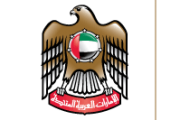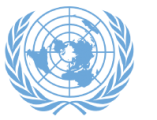The UAE aligns itself with the Group of 77 and China.
The 2020 High Level Political Forum has, to a large extent, focused our attention on the current and future impact of the COVID-19 pandemic on the implementation of the Sustainable Development Goals (SDGs). As the crisis persists, we collectively are trying to identify opportunities and silver linings. An important part of the emerging consensus around building back better is the centrality of improvements in pandemic preparedness and resilience. The UAE believes that broadening the concept of preparedness beyond the pandemic to include all future risks and opportunities can significantly contribute to sustainable development, and help us achieve the SDGs. The UAE uses future forecasting and anticipation of global trends as guidance and inspiration for its strategic planning and policy-making. It is the reason, for instance, we have introduced ministerial portfolios like Artificial Intelligence, Food and Water Security, and Happiness over the last several years, and the driving factor for the UAE to be one of the first major investors in women’s empowerment and renewable energy in our region. We will continue to advocate, in the multilateral space, the importance of analyzing future trends and their opportunities, and redesigning policy and financing approaches in order to improve lives and livelihoods. We believe a focus on this capacity can help all countries leapfrog to better development outcomes.
Climate change is perhaps the single most consequential megatrend of our day, and more specifically the health impacts of climate change. The UAE has been a long-standing advocate of a nexus approach between climate and health, recognizing that the causes of climate change are also responsible for over 7 million deaths per year, and untold healthcare costs, which has disproportionately affected women, the elderly, and people with disabilities. Climate action is, therefore, an economically attractive and sound investment for improved health outcomes. With the UAE’s breaking of the world record for low-cost solar in April 2020, solidifying the global trend of renewable energy being the cheapest power source, climate action for human health is a greater opportunity and investment. The UAE acknowledges the importance of early warning and anticipatory financing mechanisms. These mechanisms help to disburse resources and drive preventative work based on credible forecasts of disaster and are essential in reducing the human and economic costs of climate change.
This year, COVID-19 has reinforced another dimension of the human health benefits of climate action and future preparedness. Environmental degradation, changing weather patterns, and the loss of natural habitat for wild animals are proven driving factors for transmission of disease from animals to humans. Zoonotic diseases, therefore, has been identified as another substantial reason for the UAE to invest in conservation. The UAE has joined a group of countries in a High Ambition Coalition, which commits to protect 30% of land and sea by 2030 – triple the SDG target. If this target becomes the new global consensus, it would significantly contribute to global betterment.
The UAE is a firm believer in the adage “You can’t manage what you can’t measure”. Since the adoption of the SDGs, it has been known that a quantum leap would be required in statistical capabilities, data availability, and measurement techniques to achieve the SDGs. The UAE National Committee on SDGs, our custodian of SDG implementation, has therefore dedicated 2020 to improve domestic data availability with a focus on producing more relevant, accurate, timely, and easily accessible data, standardized across each of our emirates’ statistical offices. This is being done through the launch of a range of initiatives undertaken to analyze data readiness, close necessary data gaps, and to define quadrennial targets that will guide policy-making. Innovative solutions have been implemented to facilitate data availability including the UAE SDG Data Hub, an innovative award-winning platform - launched in response to the invitation from the UN’s
Open SDG Hub - to serve as a centralized platform to decision makers whilst educating and engaging the whole-of-society on the SDGs. In addition, the SDG Data Readiness Race was designed to initiate a race between the 16 member entities of the UAE National Committee on SDGs to set priorities for SDG indicators and assess data availability in the UAE. This complemented the efforts undertaken in raising awareness on the goals through a dedicated communication plan. An example of a global campaign was the SDG Photography Award; an international award to raise global awareness around the SDGs through the lens of photographers which attracted over 4000 participants from around the world from 130 countries.
While the pandemic is shifting budgetary priorities across the globe, and rightly, so, we urge national governments, including the UN system, to place data and measurement at the forefront of development activities.


